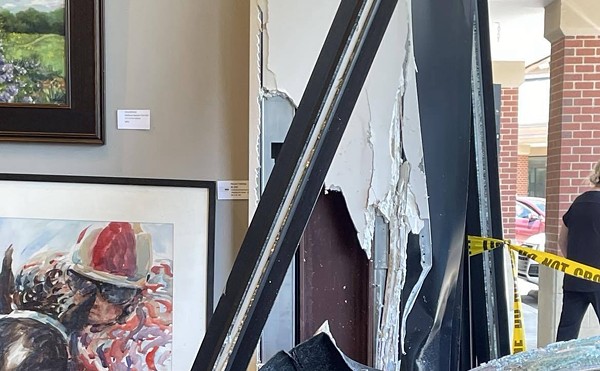The first Southern Indiana gay bar recently opened in New Albany. For many, it is a celebration. Finally, there is a place to go — called The Warehouse — and meet others in the LGBTQ community without having to venture across the bridge to Louisville.
For a few, the opening of the bar raises questions about the protocol of straight people going to a gay bar — questions like whether or not one would be allowed in the bar if one were straight. Further still, some who claim full support (I think) nervously overstated the need for public education about homosexuality, and felt the need to point out that, in all of the recent economic development in New Albany, a gay bar wasn’t included in the roster of prospective businesses. It wasn’t excluded, mind you, just not specifically spelled out.
To be fair, the issues raised are symptomatic of a larger problem. The problem is that, as a nation, we are failing to teach and educate ourselves about difference. Difference is too often linked to fears of exclusion. People are afraid of not being in the know, yet they are just as frequently resistant to understanding when life happens outside of the parameters they are comfortable with.
What we know, in general, as a society about difference is as basic as a Disney film. “People are people.” The difference is there is no difference. The problem with that thinking is that, fundamentally, people are different. We are like our fingerprints. We are similar but trying to exist as if we are all the same, which creates fear when members of this “melting pot” color outside the lines.
For a while, in schools, multicultural teachings included the whitewashing effect of treating everyone as equals without acknowledging and appreciating the ways in which we differ. In some ways, it is easy to paint people with a wide brush stroke. However, living in a post-colonial world, the phony “oneness” creates a new colonization for those who previously fit into the category of “other.” While blacks may theoretically have the same legal rights as their white counterparts, ignoring the historical legacy that makes the black experience different puts that experience in an enslavement of its own.
The same issue applies to the LGBTQ experience today. If segments of society can ignore the parts of “queerness” that make it different from heterosexuality, then it becomes more palatable because it is homogenized.
Opening a gay bar in a small town puts that difference front and center for people who aren’t sure what it means to have a bar that offers a judgment-free zone for a specific clientele. It becomes even more confusing when questions are raised about the exclusion of straight people from the bar as though, because the bar is a gay establishment, somehow it must seek to oppress heterosexuals.
Of course this couldn’t be further from the truth. In no way is the intention of the bar to exclude straight people. Having been a dedicated ally for most of my life, I’ve never been to a gay bar that made me feel as if I didn’t belong or that my presence was in any way unusual.
The intention of The Warehouse, I assume, is to offer a place where the LGBTQ community in New Albany can go without having to travel and take economic dollars across the river. I’m also making the assumption that the bar is hoping for some reciprocity from gay patrons in Southern Indiana. Simply put, it is just another option.
Before it seems as though I am tearing down people who legitimately do not understand how a gay bar works or that I am minimizing the fact that people still don’t understand the LGBTQ community or difference as a whole, let me say plainly that despite what I see as problematic, I realize this hole in understanding exists. It’s easy for me, being from Louisville, to forget that often, outside of the city, the values I’ve had ingrained are not commonplace.
What is the remedy for this lack of understanding without making a mockery of the communities that small-town America just doesn’t get, and vice-versa?
I think the experience and education about difference could help. I don’t think it is useful to specify which differences need to be accepted. If our society placed value on difference as important and integral to its foundations, then maybe these questions might not arise. If we’d made the education about difference a priority, we likely wouldn’t have court battles to secure rights supposedly guaranteed by the Constitution but apparently only available to those who assimilate.






